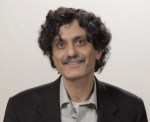I have a new participatory project about to start which continues the work done by the Great War to Race Riots project over the past few years – details are below, but please get in touch with me if you would be interested in taking part.
Lives and legacies of 1919: A Community History
In 1919, Liverpool (along with a number of other UK cities) experienced a series of race riots in the aftermath of World War One. Most infamously, Charles Wootton was murdered by a mob on the 5th of June 1919, however, there were many other people whose lives were devastated by the events of 1919. This project explores the lives and legacies of 47 black men who were affected by the 1919 race riots. It will expand on a previous project – From Great War to Race Riots – which collected information about these 47 men, particularly through the letters they wrote to various officials asking for justice or help from the authorities.
Funded by the AHRC, the Centre for Hidden Histories in Nottingham, and organised by Writing on the Wall and the University of Liverpool, we will explore the 1919 riots and their aftermath in Liverpool through 4 different mini-projects.
- Life, marriage and partnership in Liverpool: This part of the project will explore the family histories of the men who remained in Liverpool. We will explore where these men lived, who they married/lived with, and where their children lived. We will look through ancestry records, but also through other records held in both the Liverpool Records Office in order to understand what life was like for these men and their families after the 1919 riots.
- Legacies of 1919 on Merseyside: Here we will interview family members and descendants of those we have identified in the first project. Using these interviews, some of which will be video recorded, we will make some videos for the project website and to be used in public presentations about the project.
- Official responses to 1919: The Great War to Race Riots project uncovered some of the official responses to the letters and requests of the 47 men, but not all of them. We will attempt to complete this record, and will travel to London to the National Archives to try to understand the official reaction to the events of 1919.
- Project Public Event: At the end of the project, there will be a public event/workshop to tell people about the things we have found out during the project. This mini-project will mainly involve helping to organise the public event to take place in October/November 2017, and well as taking part in the workshop itself.
We are looking for a team of volunteers to take part in the project. You don’t need to have any previous knowledge of the events of 1919, and you can take part in the various mini-projects that are of the most interest to you. We will also provide training in any skills which you may require, so you don’t need any previous experience of looking at archives, conducting interviews or any other aspects of the projects.
The project will run for 10 months, although some of the mini-projects will not last for the full length of the project. We will meet every two weeks during the 10 months as a group to plan and discuss progress as the project develops, so you would need to attend the majority of these meetings. The first meeting will be on the evening of the 28th of February, where we will introduce the project and you will have a chance to ask any questions.
If you like to take part in the project, or would like to learn more about it, then please contact:
Andy Davies, the researcher leading the project at the University of Liverpool – a.d.davies@liv.ac.uk Tel: 0151 7942840




